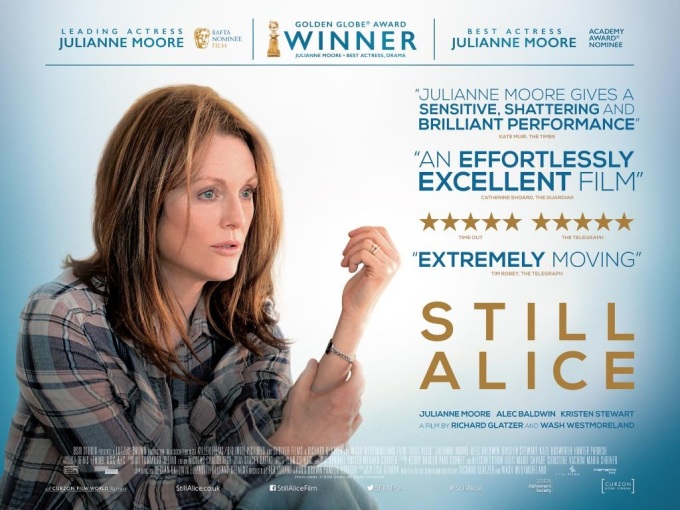We seem to have avoided the dumping month of 2015 up to this
point. But with March we have very few thrills or anything to get excited
about. I won’t lie, it’s been a slightly disappointing month, especially with a
certain film transforming the opinion over an Alien 5 from a brilliant idea to
a worrying concept. But still there were some good parts, and here are the
three standouts from this month.
3: It Follows
An homage to the video nasty era of horror but there’s
enough intelligence and wit woven throughout to make It Follows a very
interesting and enjoyable scary film. In a year that’s sure to contain the odd
number of lazy low budget horror flicks its promising to see the first one be
this well made and entertaining. There’s also little doubt that many of these
lazy filmmakers will try to imitate the success and refreshing nature of it, as
well as this we can add the Follower to one of the great 20th
century monsters.
2: Still Alice
Julianna Moore gives what is arguably the performance of her
highly distinguished career. The heartfelt, raw and achingly true story of Alzheimer’s
disease claiming a young intellectual and the crushing effect it has on her as
well as the rest of her family. There are credible performances all round but
the dramatic depth is only extended by the underlying themes of identity and academia.
Nearly every scene matters and has an impact, with no misstep and no Hollywood melodrama.
1: The Tale of the Princess Kaguya
Studio Ghibli and Takahata go it alone with the retirement
of Hayao Miyazaki and fear not fans of Totoro, the team is most certainly not
lost without its biggest player. The animation takes a slightly different tone
to previous work from the company, but it could be there most beautiful yet.
The story is wonderfully inventive and unique, the imagination soars, it
relishes life itself as we witness birth, growth, coming of age, fate, grief,
joy, departure and about a dozen other emotions. It is truly a work of art.
And the worst…..
CHAPPiE
It pains me to give this to one of the most anticipated films of
the year, from Neil Blomkamp who has gone from visionary to a guy with a good
idea executed poorly in around two hours of bad dialogue, ridiculous plot
points, misplaced motives unlikable characters and awful acting. It is
certainly visually impressive, and I can certainly learn to love the character
of Chappie himself but the surrounding humans and relationships stem from the
wrong end of the spectrum. As I explained in my Relatables segment if you want
a touching human/robot story watch the Iron Giant, avoid this.


